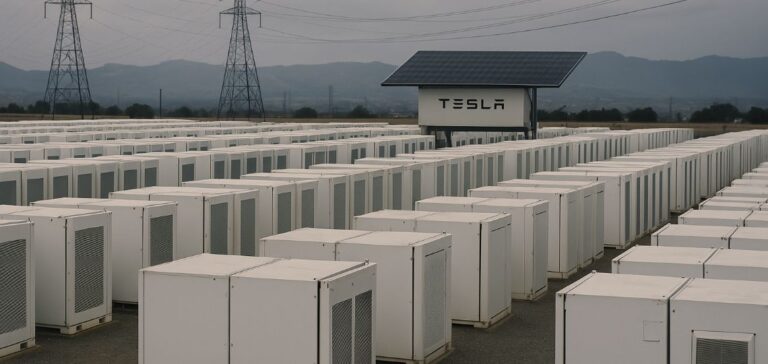The United States battery energy storage system (BESS) market is expected to grow from $2.13 billion in 2024 to $7.02 billion in 2029, according to a report published by MarketsandMarkets™ on April 9. This growth, with a projected compound annual rate of 26.8%, is fuelled by the need to integrate intermittent energy sources such as wind and solar into the US power grid while enhancing resilience to climate-related disruptions.
Leading states and dominant technology
Large-scale energy storage installations are expected to increase significantly in 2024, with battery capacity forecast to nearly double. California and Texas remain the most active states in deploying these systems. Lithium-ion technology has established itself as the market standard due to its high energy density, fast response times and a nearly 20% annual cost reduction over the past decade.
Large-scale manufacturing, notably through facilities such as Tesla’s Gigafactory, has improved accessibility to this technology. These batteries, which can operate for up to 15 years under effective cycle management, meet key grid requirements such as frequency regulation and renewable energy storage.
A transforming energy infrastructure
On-grid BESS systems now represent the dominant market share, enabling the storage of excess energy generated during peak production and low demand periods, such as at night or on sunny days. These systems are essential for managing consumption spikes, stabilising the grid, and optimising energy resources.
The utility-scale application segment is expected to capture a significant share of the market, supported by infrastructure modernisation and national renewable energy targets. Rising electricity prices and increasingly frequent outages caused by extreme weather are encouraging energy providers to adopt these systems. The economic benefits of lower electricity costs are also driving wider deployment across the utility sector.





















